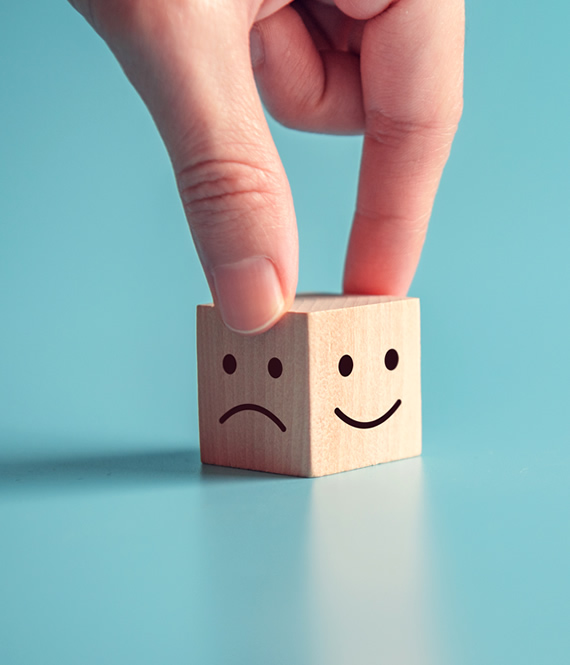
Understanding Depression: Signs, Symptoms, and Support
We recommend helpful products in our articles. Read our full disclosure here. The content on this website is not intended to be a substitute for professional advice, diagnosis, or treatment.
Depression is a common mental health condition that can affect anyone, regardless of age, gender, or background.
It’s essential to understand the signs and symptoms of depression and how to get help and support if you or someone you know is struggling with this condition.
In this article, we’ll explore what depression is, its causes and risk factors, and how to get help and support for it.
What is depression?
Depression is a mental health condition that affects how you feel, think, and behave.
It’s characterized by persistent sadness, hopelessness, worthlessness, and a loss of interest in activities you used to enjoy.
Depression can range from mild to severe, interfering with daily life and relationships.
It’s important to note that depression is not the same as feeling sad or having normal mood swings – it’s a persistent and chronic condition that requires professional help to manage.
Also, it’s not a sign of weakness.
Signs and symptoms of depression
Depression can manifest in various ways, and the signs and symptoms may vary from person to person.
Some of the most common signs and symptoms of depression include the following.
- Persistent feelings of sadness or emptiness;
- Loss of interest in hobbies or activities;
- Changes in appetite and weight loss or gain;
- Difficulty sleeping or sleeping too much;
- Fatigue or loss of energy;
- Feelings of worthlessness, or guilt;
- Difficulty concentrating or making decisions;
- Thoughts of death or suicide.
It’s important to note that these symptoms may vary in severity and duration, and not everyone who experiences depression will have all these symptoms.
Additionally, some people with depression may experience physical symptoms, such as headaches or stomachaches.
Causes of depression
The exact causes of depression are not fully understood, but it’s believed to be a combination of genetic, environmental, and biological factors.
Some of the potential causes of depression include the following.
1. Genetic predisposition
Depression may run in families, suggesting that there may be a genetic component to the condition.
2. Chemical imbalances in the brain
Depression may be caused by an imbalance of neurotransmitters, which are chemicals in the brain that regulate mood.
3. Environmental factors
Traumatic life events, such as losing a loved one or a significant life change, can trigger depression in some people.
4. Chronic medical conditions
People with chronic medical conditions, such as cancer or diabetes, may be at a higher risk of developing depression.
5. Substance abuse
Substance abuse can lead to changes in brain chemistry that increase the risk of depression.
Risk factors for depression
While anyone can experience depression, certain factors may increase your risk of developing the condition.
Some of the most common risk factors for depression include:
1. Family history of depression
If you have a family member with depression, you may be at a higher risk of developing the condition yourself.
2. Chronic medical conditions
People with chronic medical conditions, such as heart disease or diabetes, may be more likely to experience depression.
3. Substance abuse
Substance abuse can increase the risk of developing depression.
4. Major life changes
Traumatic life events, such as losing a loved one or a significant life change, can trigger depression in some people.
5. Childhood trauma
Childhood trauma, such as abuse or neglect, may increase the risk of developing depression later in life.
Getting help for depression
If you’re experiencing symptoms of depression, it’s essential to seek professional help.
Several treatment options are available for depression, including therapy, medication, and lifestyle changes.
Some of the most common treatments for depression include the following.
Therapy
Talk therapy, such as cognitive-behavioral therapy (CBT), can help you identify negative thought patterns and develop coping skills to manage your symptoms.
Therapy can be done one-on-one with a mental health professional or in a group setting.
Medication
Antidepressant medications can help regulate the chemicals in your brain that affect mood.
Working closely with your doctor to find the proper medication and dosage for you is essential, as everyone responds differently to medication.
Lifestyle changes
Simple lifestyle changes, such as regular exercise, a healthy diet, and getting enough sleep, can also help manage symptoms of depression.
It’s important to note that seeking help for depression is not a sign of weakness – it’s a brave and necessary step toward recovery.
If you’re struggling with depression, don’t hesitate to ask for help.
Supporting someone with depression
If someone you know is experiencing depression, it can be challenging to know how to help.
Here are some tips for supporting someone with depression:
Listen
Allow the person to express their feelings and concerns without judgment.
Let them know you’re there for them and care about their well-being.
Encourage professional help
Encourage the person to seek professional help, such as therapy or medication, if they haven’t already done so.
Offer to help them find a depression treatment center, like Kinder in the Keys, and accompany them to their appointments if they’re comfortable.
Offer practical support
Offer to help with daily tasks, such as grocery shopping or cleaning, if the person struggles to manage these independently.
Offer to accompany them to social events or activities, but don’t pressure them to participate if they’re not up for it.
Practice self-care
Supporting someone with depression can be emotionally taxing, so it’s essential to prioritize your self-care.
Ensure you get enough sleep, eat well, and engage in activities that bring you joy and relaxation.
Conclusion
Depression is a severe mental health condition that requires professional help and support.
If you’re experiencing symptoms of depression, it’s essential to seek help as soon as possible.
With the proper treatment and support, managing symptoms and improving your quality of life is possible.
Remember, you’re not alone – resources and people are available to help you on your journey toward recovery.
"We love to research problems, examine studies, analyze solutions, and share with you ideas that make life healthier. You can learn about us and our editorial standards here. Have suggestions or feedback to share? Send us a message!."













Leave a Comment